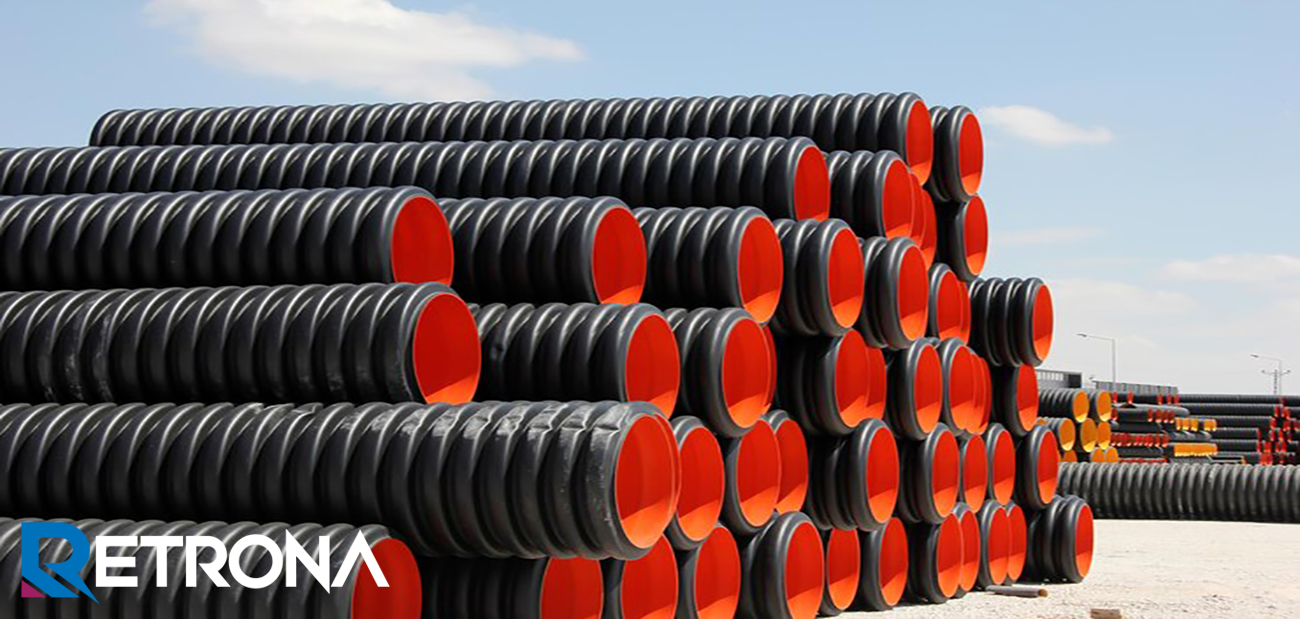Лучший выбор для современных трубопроводов: марки полиэтиленовых труб

In the world of infrastructure, the materials beneath our feet matter most. For decades, communities relied on metal and concrete pipes that corrode, crack, and require constant maintenance. Today, a smarter solution has taken root: polyethylene (PE) pipe systems.
Engineered for performance and longevity, PE pipes have become the undisputed standard for new projects in water, gas, and industrial applications. But what makes them so exceptional? This article breaks down the different polyethylene pipe grades and their powerful advantages.
What Are Polyethylene Pipe Grades? Understanding MRS
The strength of a PE pipe is defined by its Minimum Required Strength (MRS). This value (measured in MPa) indicates the long-term pressure the pipe can safely handle for 50 years at 20°C. Essentially, a higher MRS means a stronger, more durable pipe.
The common grades you’ll encounter are:
PE 80: A robust material offering excellent medium-pressure resistance. It's a reliable choice for many potable water and gas distribution networks.
PE 100: The modern industry benchmark. This grade provides superior resistance to internal pressure, slow crack growth, and chemicals. Its enhanced strength allows for thinner pipe walls, reducing material use and installation weight without compromising performance.
At Retrona, we specialize in supplying high-quality PE 100 compounds, including CRP100N and CRP100B black grades, ensuring the material for your pipes meets the highest international standards.
![[:en]Polyethylene Pipe Grades[:]](https://retrona.co/wp-content/uploads/2025/09/large-diameter-plastic-pipes_455891-10603.webp)
Where Are PE Pipes Used? Key Applications
The versatility of PE pipe grades makes them indispensable across multiple sectors:
Potable Water Systems: PE pipes are inert and corrosion-proof, ensuring water stays clean from the treatment plant to your tap. Their leak-free, fused joints prevent contaminants from seeping in.
Gas Distribution: Renowned for their safety and reliability, PE 80 and PE 100 pipes are the preferred choice for natural gas networks. They resist ground movement and will not corrode, protecting community safety.
Municipal Sewer & Wastewater: Highly resistant to abrasive and chemical sewage, PE pipes maintain a smooth interior surface that prevents scaling and blockages, reducing long-term maintenance costs.
Industrial & Mining Slurries: The exceptional abrasion and chemical resistance of PE 100 make it ideal for handling harsh process fluids, tailings, and slurries in demanding industrial environments.
Agricultural Irrigation: Lightweight and flexible, PE pipes are easy to install across fields. They are immune to soil chemicals and fertilizers, providing a durable solution for irrigation systems.
6 compelling advantages of choosing PE pipes
Why are engineers and municipalities consistently choosing polyethylene? The benefits are clear:
Zero Corrosion: Unlike iron or steel, PE is completely immune to rust and electrochemical corrosion. This eliminates the need for costly cathodic protection and ensures a long, maintenance-free life.
Leak-Free, Monolithic Joints: PE pipes are joined by heat fusion, creating a permanent bond that is as strong as the pipe itself. This eliminates joints as a potential failure point, a common issue with traditional piped materials.
Exceptional Longevity: A properly installed PE piping system has a proven service life exceeding 100 years, providing a sustainable infrastructure solution for future generations.
Superior Hydraulics: The smooth interior surface of PE pipe ensures a high flow capacity and low friction loss, which can reduce pumping costs and allow for the use of smaller diameter pipes.
Flexibility & Durability: PE pipe can bend and withstand ground settlement, frost heave, and even seismic activity without breaking. This flexibility also allows for installation over uneven terrain with fewer fittings.
Lightweight & Cost-Effective: PE pipe is significantly lighter than alternatives, slashing transportation and handling costs. Installation is faster and requires lighter equipment, dramatically reducing the total cost of projects.
Partner with Retrona for Your Polyethylene Supply
The evolution from traditional materials to high-performance polyethylene pipe grades represents a fundamental shift in how we build our infrastructure. It’s a shift towards smarter, safer, and more sustainable solutions.
As a leading exporter, Retrona provides a critical link between premier production sources and your project needs. We ensure a reliable supply of top-tier HDPE Pipe Grade materials, backed by comprehensive technical support and documentation, including Certificates of Analysis (CoA) to guarantee quality and performance.
Whether for delivering clean water, distributing energy, or supporting industry, specifying the right PE 100 material is essential for building durable and reliable infrastructure.

